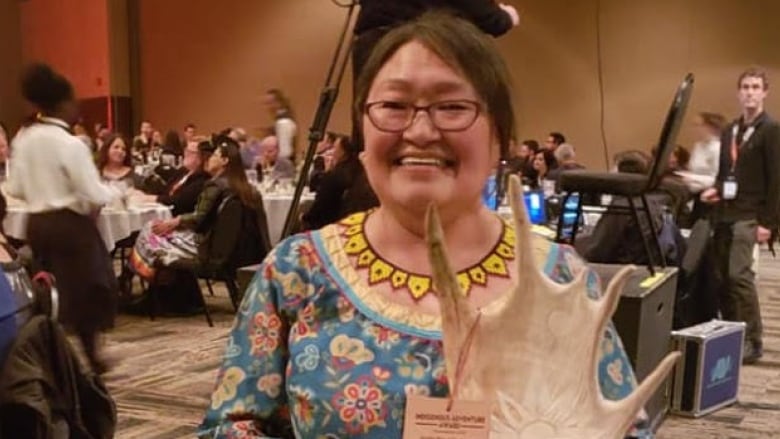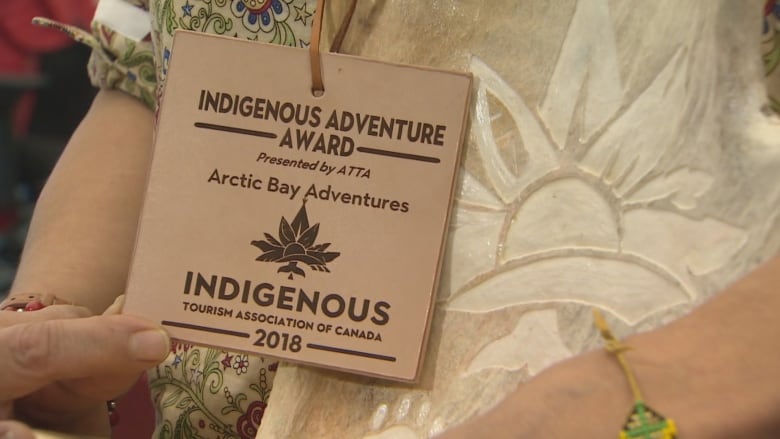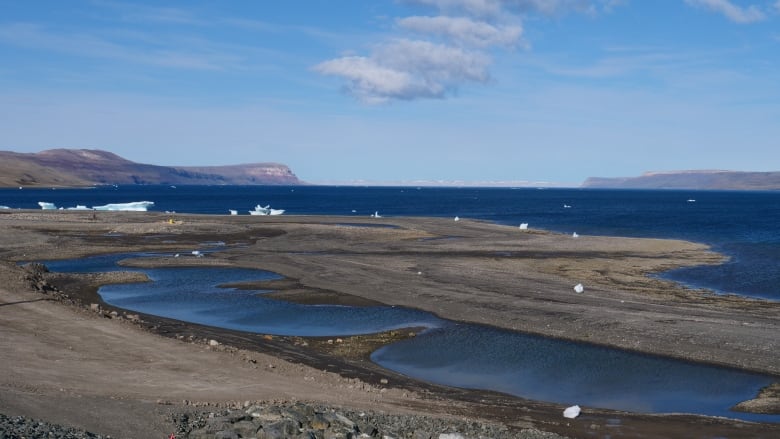Outfitter from Canada’s east-Arctic gets boost after winning Indigenous tourism award

Three years after getting started, an outfitting company in Arctic Bay, Nunavut, in Canada’s east-Arctic, has won a national tourism award for maximizing social benefits while running an environmentally-friendly business.
Arctic Bay Adventures won the Indigenous Adventure Award at the International Indigenous Tourism Conference last week.
Kataisee Attagutsiak, the company’s manager, accepted the award on behalf of the team at the conference in Saskatoon, in Canada’s Prairies.
“I didn’t hear it for a second when they said Arctic Bay Adventures, I still had something in my mouth, I almost choked, it was so exciting,” she said.

The Indigenous Tourism Association of Canada has put on the conference for the last seven years. In recent years, more than 500 people have attended.
The awards recognize tourism businesses which are majority-owned by Indigenous people or communities.
“Because everything is so technical these days, everybody’s posting as you’re making the speech and you’re walking down to the podium. Everyone’s instantly marketing for you,” Attagutsiak said.
“By the time I finished my speech we had 15, 20 bookings from all over the world, so Arctic Bay will be thriving the next few years.”
Economic boost for community

In 2016, the outfitting company started by the Hamlet of Arctic Bay, received an influx of cash from CanNor, Kakivak Association, the government of Nunavut and the legacy fund of the closed Nanisivik Mine.
The hamlet wanted to create jobs and promote the community, which has a population fewer than 900.
Attagutsiak said it took time to purchase equipment and train employees in the business logistics, but tourism was a natural fit.
Arctic Bay is near Sirmilik National Park and the Tallurutiup Imanga marine conservation area.
“As Indigenous people, tourism should not be a surprise to us because we’ve been living it all our entire lives. It’s part of us to be welcoming, it’s part of us to showcase our community, to showcase our culture,” she said.
The company already has a number of bookings to take clients out to the floe edge to see narwhal, bowhead whales and other wildlife this spring.
There is occasionally a week of 17-hour days, but Attagutsiak says she finds working in tourism healing.
“You think you’re there for the tourists that are coming into your community, but you’re actually there for yourself.
“You don’t realize how disconnected you are from your ancestors until you start showcasing where you come from. You become very very passionate to a point where you cry.”
With files from Lucy Burke
Related stories from around the North:
Canada: Indigenous Cultural Tourism: How the North is learning from community success in southern Canada, Eye on the Arctic
Finland: In Santa’s hometown, are tourism and a railway threatening Sámi culture?, Cryopolitics Blog
Iceland: Arctic tourism in the age of Instagram, Eye on the Arctic special report
Norway: Several ships being launched to feed Arctic cruise boom, The Independent Barents Observer
Russia: World’s first round-the-Arctic luxury cruise could set sail in 2020, The Independent Barents Observer
Sweden: Growing number of Swedes choose train travel over flying to reduce pollution, Radio Sweden
United States: Blog – When the ice melts, what will happen to Arctic tourism?, Cryopolitics blog



